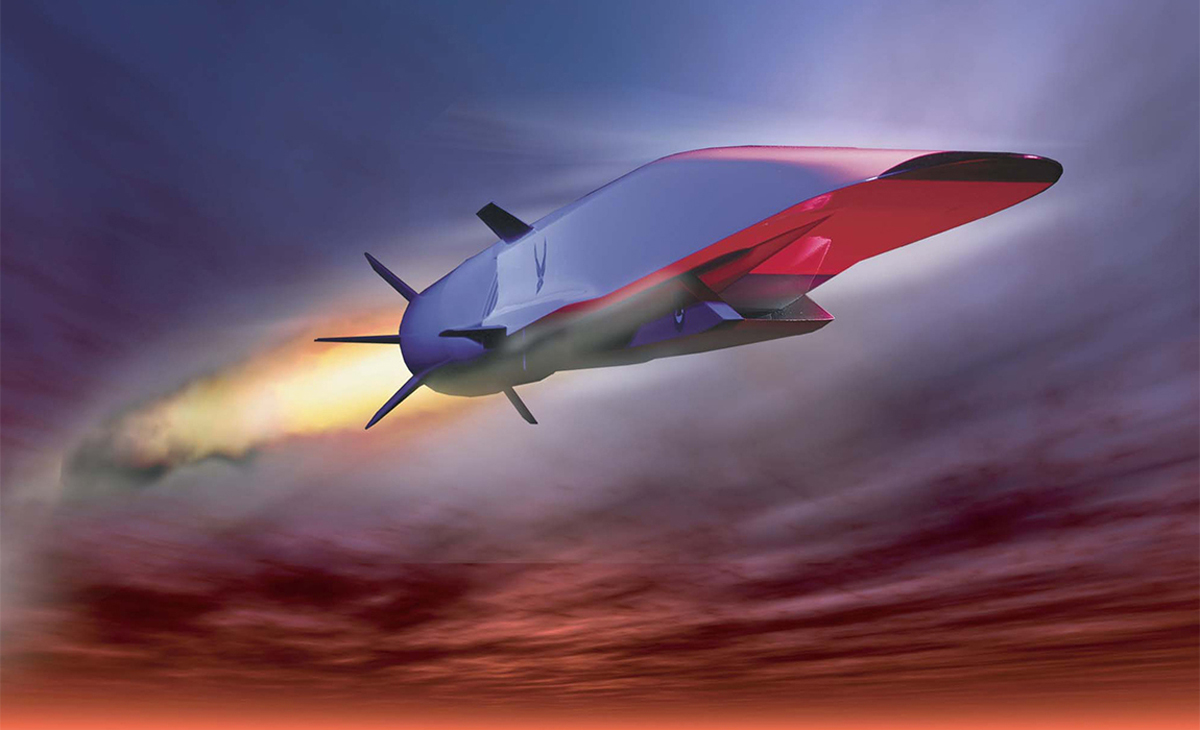NEWS & EVENTS
Boeing Launches Two Hypersonics Challenge Projects With LIFT, Department of Defense

Projects focus on powder metallurgy refractory metal matrix composites and in-situ monitoring development for hypersonic systems
DETROIT – LIFT, the Detroit-based Department of Defense manufacturing innovation institute, along with the Department of Defense (DoD), today announced the launch of two projects led by Boeing as part of the ongoing Hypersonics Challenge led by the institute.
The first project, with partner Powdermet, Inc., aims to demonstrate near-net-shape manufacturing of metal matrix composite components for hypersonic vehicle demonstrators. These high-performance, high-temperature alloys will drastically boost capability of components in hypersonic flight environments, which when combined with near-net-shape manufacturing approaches will provide quality mission critical components that are durable, reliable and rapidly manufacturable.
The second project proposes, with partners RPM Innovations, Inc. and Intelligent Optical Systems, Inc. to develop and verify a suite of in-situ build process monitoring sensors and non-destructive evaluation (NDE) approaches applicable to laser-directed energy deposition (L-DED) manufacturing for hypersonic applications. Current post-process quality verification is time-consuming and expensive; and in-process monitoring will help inform the quality of the build during the process, saving time and expensive metal powders.
“These projects will benefit the entire American manufacturing base, helping spur technology development from material producers all the way up to original equipment manufacturers (OEMs),” said Austin Mann, Metallurgist/Materials Engineer, Boeing Research & Technology and lead on the first project.
These projects are part of the Hypersonics Challenge, which was kicked off in 2021 by LIFT and the DoD Manufacturing Technology Program, overseen by the Office of the Under Secretary of Defense for Research and Engineering. The challenge sought proposals on three specific topics critical to the materials science and manufacturing process of hypersonic vehicles.
Both of these projects aim to advance the United States’ hypersonic manufacturing capabilities in a more cost-effective manner and in reduced time frames.
“Cost-effective approaches to developing hypersonic components that are reliable and rapidly producible are critical to our national security, and these projects will lead us down that path,” said Taisia Lou, Boeing Additive Manufacturing Senior Engineer, and lead on the second project.
“Understanding the materials and how they react to processing so components are near-net shape will help make the development and manufacture of hypersonic components faster, better, and cheaper for the U.S. industrial base, therefore advancing our position in this key technology area, relative to our adversaries,” said Nigel Francis, Chief Executive Officer and Executive Director, LIFT.
The Boeing projects are the final projects awarded through the challenge. Project awards were determined by a team consisting of LIFT and the Department of Defense. Decision criteria include technological merit, technology readiness level (TRL), manufacturing readiness level (MRL), funding requirements, cost-share commitment, ITAR compliance, and LIFT member engagement.
Along with Boeing, LIFT and the DoD announced and kicked off Hypersonics Challenge projects with ATC Materials, Inc., Lockheed Martin and Raytheon Technologies.